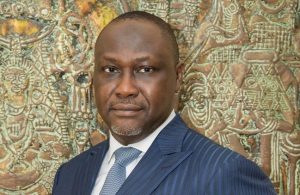Africa Finance Corporation (AFC), Africa’s leading infrastructure solutions provider, has announced what appears to be its most impactful year to date, with an expansion of projects and investments spanning energy, transportation, mining, food, textiles and climate resilience.

Underpinning growth in earnings and total assets, AFC successfully navigating the global geopolitical, inflationary and debt distress challenges of 2023 to implement critical infrastructure projects across multiple sectors that are central to Africa’s structural transformation and sustainable development.
Landmark initiatives include Djibouti’s first wind farm, with AFC as lead developer advancing plans to become the first African country wholly reliant on renewable sources for energy, and the Lobito Corridor rail project, with AFC again as lead developer working alongside the US, European Union and governments of Angola, DRC and Zambia to mobilise industry and connect the Atlantic and Indian oceans.
Advancing industrialisation, value creation and livelihoods, AFC with its partner Arise IIP expanded the Arise Special Economic Zones to 10 West and Central African countries, focusing on essential sectors including food security, textiles and minerals.
“At the heart of AFC’s mission is our commitment to deliver impactful solutions for Africa, and this guides each and every investment we undertake,” said Samaila Zubairu, AFC’s President and CEO.
“AFC’s impact is evident in our solutions-oriented approach and unwavering commitment to realising transformative projects across Africa – infrastructure projects like the Red Sea Power Wind Farm in Djibouti, the Arise IIP industrial zones and the Lobito transport corridor that are reshaping the landscape, fostering sustainable development for local communities, and altering the economic trajectory of countries,” he added.
Created through powerful international collaborations, AFC projects undertaken in 2023 also include a joint initiative with Xcalibur Multiphysics to advance the mapping and responsible utilisation of Africa’s natural mineral resources, enabling greater mineral beneficiation, diversified economies, and clean energy transition. In DRC, the Corporation has committed to helping overhaul Kinshasa’s mass transit system to enhance mobility and reduce pollution through a partnership with Trans Connexion Congo.
A commitment of US$253 million from the Green Climate Fund to the AFC Capital Partners’ Infrastructure Climate Resilient Fund (ICRF) marked a significant step toward developing sustainable, climate-resilient infrastructure in Africa.
Each initiative blends meaningful development impact and environmental sustainability with strong risk-adjusted returns, leveraging AFC’s unique experience of de-risking project development to crowd in capital and accelerate completion.
“In a year marked by global economic and geopolitical complexities, AFC has stood as a beacon of resilience, delivering value to all stakeholders while creating jobs and prosperity through structural transformation across Africa,” said Mr. Zubairu. “Our robust financial results reflect AFC’s unwavering commitment to unlock practical solutions for projects that enhance local value capture and spur industrialisation.”
AFC’s annual profit rose 15.3% to US$329.7 million, while operating income increased 24.2% to US$497.5 million, and total assets expanded 17.3% to US$12.34 billion, surpassing the Corporation’s five-year strategy target by US$2.3 billion.
